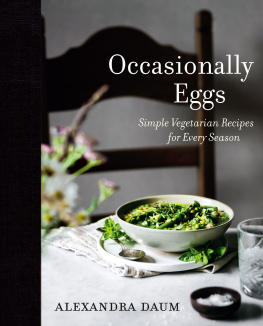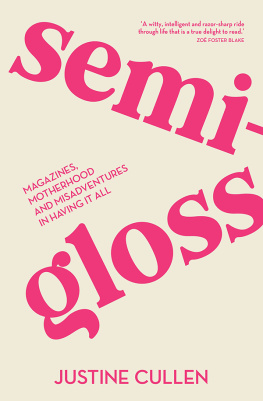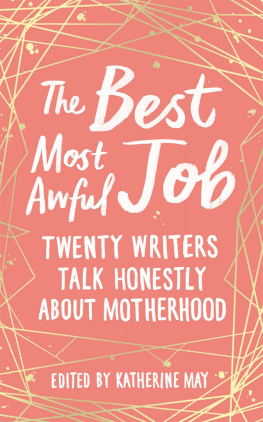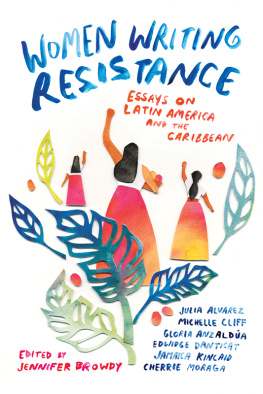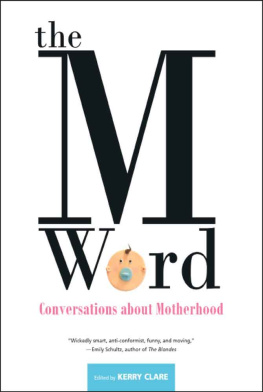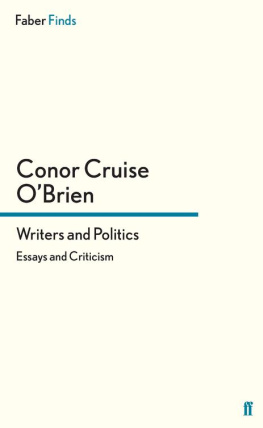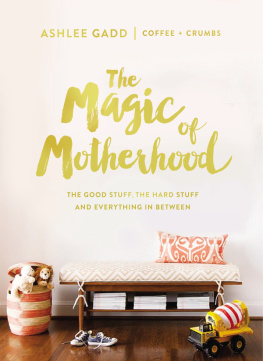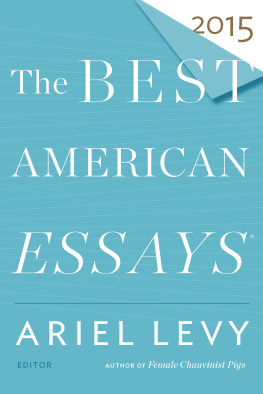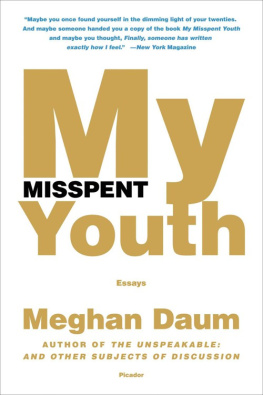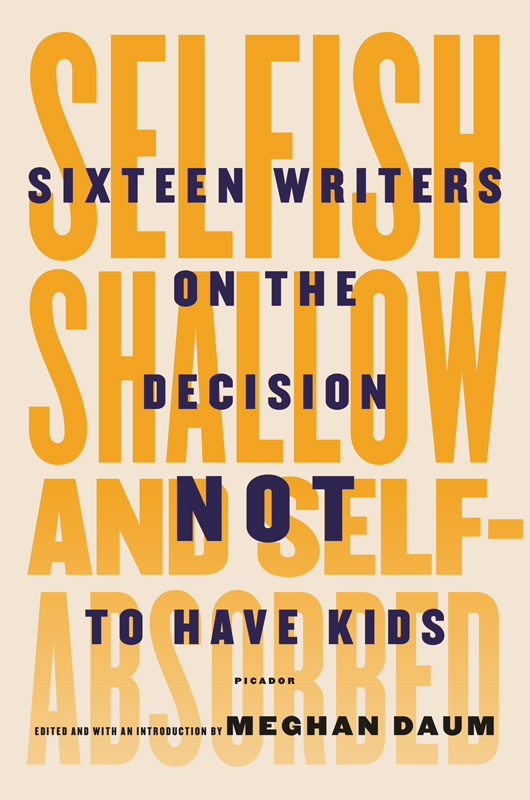Contents
Guide

The author and publisher have provided this e-book to you for your personal use only. You may not make this e-book publicly available in any way. Copyright infringement is against the law. If you believe the copy of this e-book you are reading infringes on the authors copyright, please notify the publisher at: us.macmillanusa.com/piracy.
W HILE WORKING ON this book, I sometimes found myself contemplating a variation of Leo Tolstoys famous happy families line from the opening of Anna Karenina : People who want children are all alike. People who dont want children dont want them in their own ways.
Of course, the original maxim isnt exactly true, since happy families come in all varieties, and unhappy families can be miserable in mind-numbingly predictable ways. And since most people eventually wind up becoming parents, whether by choice, circumstance, or some combination thereof, my version isnt necessarily an airtight theory either. Still, in thinking about this subject steadily over the last several years, Ive come to suspect that the majority of people who have kids are driven by any of just a handful of reasons, most of them connected to old-fashioned biological imperative.
Those of us who choose not to become parents are a bit like Unitarians or nonnative Californians; we tend to arrive at our destination via our own meandering, sometimes agonizing paths. Thats one of the reasons I put this anthology together. Contrary to a lot of cultural assumptions, people who opt out of parenthood (and, to be clear, this is a book about deciding not to have children; not being able to have them when you want them is another matter entirely) are not a monolithic group. We are neither hedonists nor ascetics. We bear no worse psychological scars from our own upbringings than most people who have kids. We do not hate children (and it still amazes me that this notion is given any credence). In fact, many of us devote quite a lot of energy to enriching the lives of other peoples children, which in turn enriches our own lives. Statistically, we are more likely to give back to our communities than people who are encumbered with small childrennot just because we have the time but because giving back often includes returning the kids to their parents at the end of the day.
To read the essays in this book is to notice that, in many ways, the common theme is that there is no common theme. Though all the authors are more than satisfied, and in some cases downright ecstatic, with their decision to forgo parenthood, no two reached that decision in quite the same way. For some, the necessary self-knowledge came after years of indecision. For others, the lack of desire to have or raise children felt hardwired from birth, almost like sexual orientation or gender identity. A few actively pursued parenthood before realizing they were chasing a dream that theyd mistaken for their own but that actually belonged to someone elsea partner, a family member, the culture at large. As Jeanne Safer so poignantly describes in her essay, she didnt really want to have a baby; she wanted to want to have a baby.
That line nearly took my breath away. Though I can now say (and as I wrote in the margin of Jeannes piece), Thats exactly how I once felt! there was a time before that when I hadnt yet reached such hindsight. Instead, I was trying very hard to talk myself into wanting something Id always known deep down wasnt for me. Not that things wouldnt have worked out fine if those talks had ended with a baby. I had a willing husband and a supportive community of friends. Theres no question that I would have loved my child with a kind of love Id never know otherwise. But when I found my way back to my gut instincts, when I stood in my truth as the parlance goes today, I realized that what I wanted most of all was to find some different ways of talking about the choice not to have kids. I wanted to lift the discussion out of the familiar rhetoric, which so often pits parents against nonparents and assumes that the former are self-sacrificing and mature and the latter are overgrown teenagers living large on piles of disposable income. I wanted to show that there are just as many ways of being a nonparent as there are of being a parent. You can do it lazily and self-servingly or you can do it generously and imaginatively. You can be cool about it or you can be a jerk about it.
Typically, its been the nonparents who have carried a reputation for being jerks. Some of that is our own doing. When Time magazine ran a cover story in the summer of 2013 showing a visibly self-satisfied couple lying on the beach under the headline The Childfree Life: When Having It All Means Not Having Children, it highlighted a major misconception about the voluntarily childless: the idea that we dont want kids because wed rather have expensive toys and vacations. Type childfree into an Internet search engine and you will find no end of tirades against breeders along with smug suggestions on the order of Id rather spend my money on Manolo Blahniks and My reason for not having kids is that Porsche in my driveway. Even the term childfree , which was coined as a way of distinguishing the deliberately childless from those who unwillingly or unintentionally find themselves in such circumstances, rubs some people the wrong wayafter all, why should children fall into the same category as cigarette smoke or gluten?
When that Time article came out (the article itself, I should say, showed far more equanimity than the cover suggested), I had just begun my search for contributors to this book. The timing seemed perfect. As the subject was being chewed over in the media, it was clear that the conversation had a long way to go. Cable news hosts purported to be shocked at the idea that some people dont want kids (the more diplomatic were quick to add, Not that Im judging). On the Internet, the standard barbs of selfish and shallow ricocheted around comment threads, even as thousands of contented nonparents expressed their gratitude that the issue was finally being talked about. One night I caught a public radio program on which a listener called in to say that choosing not to have children was a totally legitimate and commendable choice but that he personally had been so enriched by fatherhood that he couldnt help but think that nonparents were living incomplete, ultimately sad lives.
If the core message of this book is that parenthood is notand moreover should not befor everyone, the chief lesson of editing the book was that writing about skipping parenthood isnt for everyone either. Of the many dozens of writers I approached (all of whom had at least hinted, in their work or in interviews, that having children was never high on the agenda), very few were prepared to take on the subject. Some said that, yes, they were childless by design but lacked sufficient angst about it to have anything interesting to say. Some told me they had a lot to say but couldnt for fear of hurting certain family members. In one case, a celebrated novelist whod apparently been known at one point as someone who never, ever wanted children replied to me with a photo of his infant son.
Thats why the sixteen essays in this book are such gifts. Brave, thoughtful, and uncompromisingly honest, they are all tributes to the exquisite challenges of living what is commonly (and usually inadequately, though theres often no other way to say it) called an authentic life. Frequently funny and sometimes sad, occasionally political and always personal, these essays show that theres more than one way to be a responsible, productiveand even happyadult in the world.


